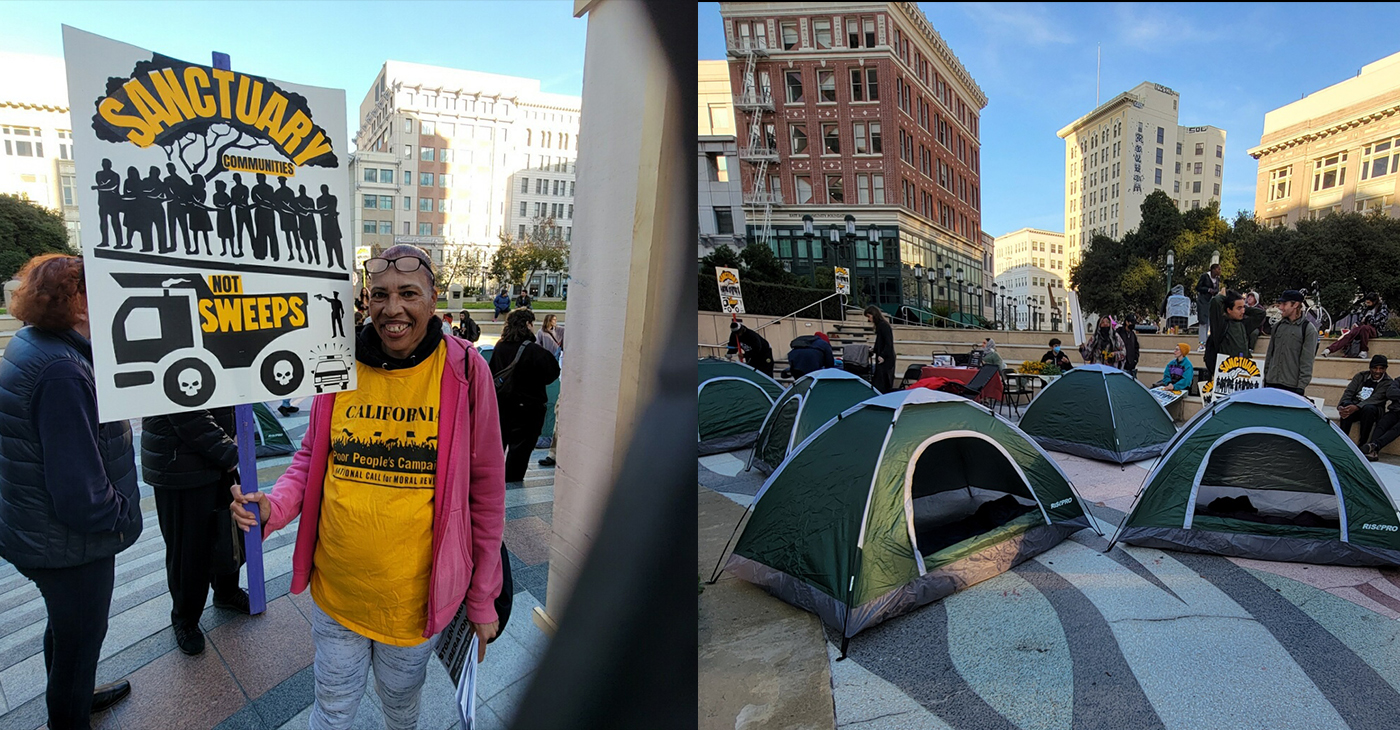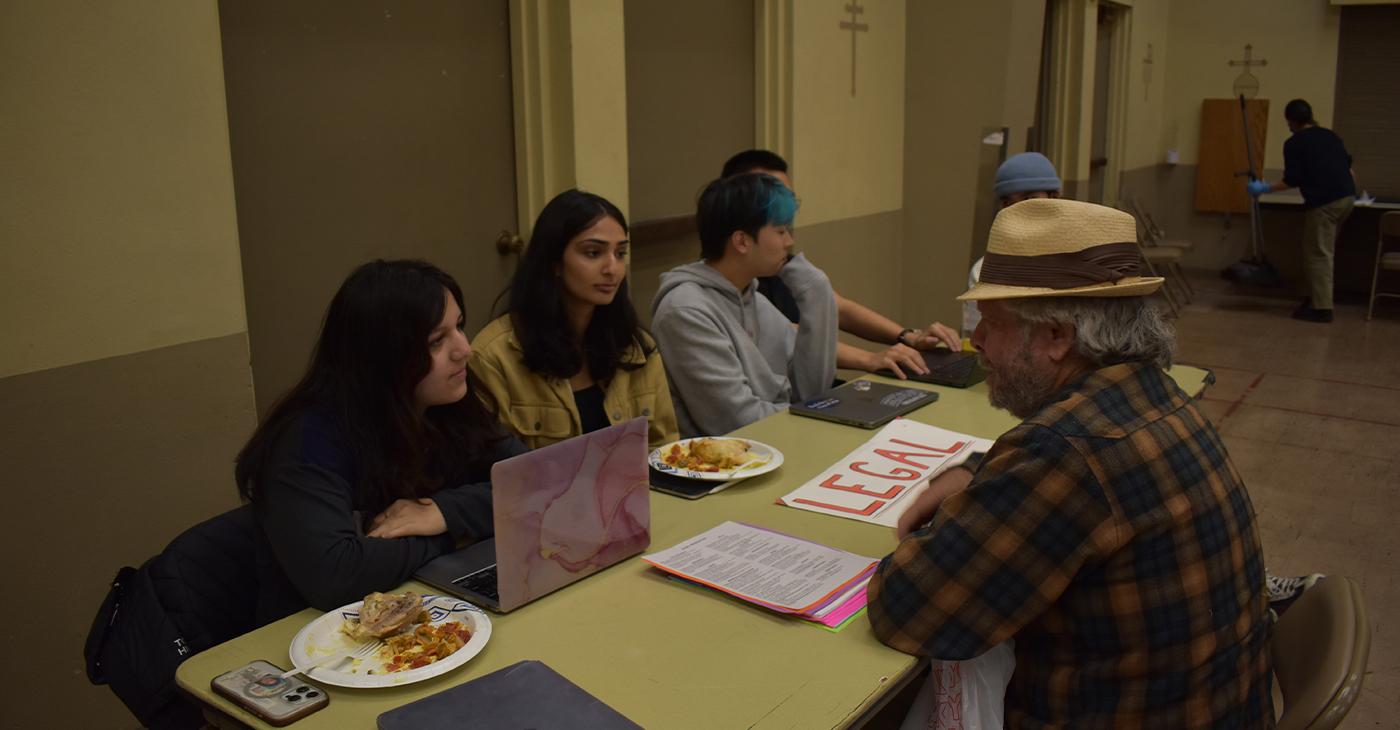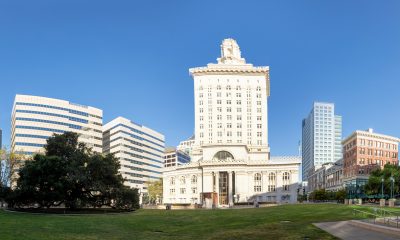Housing
Opinion: Oakland has the land to accommodate new residents without displacing others

Oakland needs a bold, new vision for housing. The loss of life in the Ghost Ship fire should be a wake-up call to everyone, residents, developers and city officials alike. The tragedy highlights the danger of allowing property owners to rent sub-standard, un-sanctioned housing, or allowing people to illegally occupy commercial buildings in the pursuit of affordability.
This is precisely why we have zoning and building codes that distinguish between residential and commercial buildings and mandate safety and habitability standards. Property owners must ensure that their properties are legal and up to code. If a building has been allowed to deteriorate, or is being used illegally, the building may need to be vacated to complete the required work and/or ensure that residential occupancy is legal.
In our housing crisis, residents in need of affordable housing resist displacement. It is understandable that some people side with such residents out of compassion. But, Ghost Ship showed us in clear and unmistakable terms, there is nothing compassionate about letting people live in dangerous, life-threatening conditions.
Unfortunately, developers who turn around dangerous or illegally occupied properties are treated, by some, like bad-guys coming in to gentrify neighborhoods. The truth is, more often than not, the developer who turns properties around most often did not cause those properties to fall into disrepair.
We hope investors and developers will continue to renovate dangerous properties. At some point, we must face the reality that the cost of living in the Bay Area exceeds the ability of portions of our population to afford to live here. Either we come up with creative solutions and massive funding strategies, which has not been done so far, or a lot of people will not be able to live here.
If you do the math, it becomes clear that even with the adoption of impact fees for affordable housing, Measure KK funds and the county-wide affordable housing measure, the revenues from the measures are not nearly enough to meet the demand for affordable housing. Clearly, the problem is inadequate supply, and that should be our focus.
We need a new and bold vision that allows developers of market rate housing to create housing options that are affordable by design. Some of that may include micro- units, modular units, and repurposing formerly industrial properties. Buildings that are occupied illegally may require extensive renovations, often including environmental clean-up.
New projects often offer a better use of space, creating a greater number of units per building, often including such amenities as commercial spaces and green spaces in areas that currently lack such amenities, bike racks and LEED certified designs. These features benefit the entire community.
Oakland is an attractive place to live and people want to live here. The good news is that Oakland has the land to accommodate new residents without displacing those that are already here, if we have the will to build a bigger city.
Activism
Protesters Gather in Oakland, Other City Halls, to Halt Encampment Sweeps
The coordinated protests on Tuesday in San Francisco, Oakland, Vallejo, Fresno, Los Angeles and Seattle, were hosted by Poor Magazine and Wood Street Commons, calling on cities to halt the sweeps and focus instead on building more housing.

By Post Staff
Houseless rights advocates gathered in Oakland, San Francisco, Los Angeles, and other city halls across California and Washington state this week protesting increased sweeps that followed a U.S. Supreme Court decision over the summer.
The coordinated protests on Tuesday in San Francisco, Oakland, Vallejo, Fresno, Los Angeles and Seattle, were hosted by Poor Magazine and Wood Street Commons, calling on cities to halt the sweeps and focus instead on building more housing.
“What we’re dealing with right now is a way to criminalize people who are dealing with poverty, who are not able to afford rent,” said rights advocate Junebug Kealoh, outside San Francisco City Hall.
“When someone is constantly swept, they are just shuffled and things get taken — it’s hard to stay on top of anything,” said Kealoh.
Local houseless advocates include Victoria King, who is a member of the coordinating committee of the California Poor People’s Campaign. She and Dr. Monica Cross co-chair the Laney Poor People’s Campaign.
The demonstrations came after a June Supreme Court ruling expanded local governments’ authority to fine and jail people for sleeping outside, even if no shelter is available. Gov. Gavin Newsom in California followed up with an order directing state agencies to crack down on encampments and urging local governments to do the same.
Fresno, Berkeley and a host of other cities implemented new rules, making it easier for local governments to clear sidewalk camps. In other cities, such as San Francisco, officials more aggressively enforced anti-camping laws already on the books.
Activism
Through Two Programs, Shuja Helps Others Get a Second Chance at a First-Class Life
Damon Johnson, a peer counselor who serves as the executive director of Black Men Speak and Men and Women of Color will be affected by the state’s new rules. Living with a behavioral health condition, he is an advocate and a leader. Damon, best known as Shuja, was incarcerated for 34 years and today is advocating for the rights of persons with similar lived experience and for the survival of peer-led programs like the one he manages.

By Melody Parker, Gloria Woodson, Jaleah Winn and Damon Shuja Johnson
Special to The Post
Under recently passed Proposition 1, California’s behavioral health services will be allocated $1 billion for services for the unhoused in 2026-27, Governor Gavin Newsom announced last summer.
Although some of the funds from the Mental Health Services Act were diverted to Proposition 1, individuals living with behavioral health conditions and housing challenges are maintaining hope for wellness and recovery.
Damon Johnson, a peer counselor who serves as the executive director of Black Men Speak and Men and Women of Color will be affected by the state’s new rules. Living with a behavioral health condition, he is an advocate and a leader. Damon, best known as Shuja, was incarcerated for 34 years and today is advocating for the rights of persons with similar lived experience and for the survival of peer-led programs like the one he manages.
Two days after his reentry to the community, Shuja began work as an outreach coordinator for Black Men Speak. Within a year, Shuja was promoted and later appointed to director after the loss of former Black Men Speak Executive Director Joe Anderson.
A native of North Oakland, Shuja was raised in an all-women household after his grandfather was murdered. Though dealing with his own grief, the loss caused Shuja to become the “man of the family.”
His grandmother’s nurturing helped him to overcome the trauma of his grandfather’s death which, “gave him a foundation as a child.” He recalls fond memories of his childhood, like riding a new bike he received for the holidays. “My friends and myself spent meaningful time together as children,” he said. “Together, we would build go-carts, climb trees, have rock fights and find worms, crabs and bees.”
But his trauma impacted his childhood and led to his being impacted by the system. Shuja grew up mostly in detention halls and prison.
Besides directing Black Men Speak! (BMS!)/Men and Women of Color (MWOC), he is also the director of a self-help center in Oakland. There, Shuja and the peer workers provide support to the unhoused. He coordinates a digital literacy program, co-facilitates trainings for peer support specialists, organizes a service animal resource, provides peer support and directs speakers’ bureaus.
BMS! and MWOC are programs increasing wellness and recovery by sharing stories of hope and journeys to meaningful living. Members have authored presentations and spoken to audiences on topics such as post-traumatic stress disorder, family, community violence, self-worth, spirituality, and mental health, alternative therapies, eight dimensions of wellness, reentry, single parenting and health.
The members have been featured nationally and locally, at trainings and conferences and throughout Alameda County Behavioral Health Care services. The organization has been in operation for over a decade.
It all began in 2009 and received nonprofit status in 2012. The group developed from Peers Organizing Community Change, formerly known as Pool of Consumer Champions (POCC), originally established as an all-men’s committee.
The committee co-founders Dewitt Buckingham and Darnell Livingston organized men with experience in the public mental health system for a speaker’s bureau. This was the consensus of the committee after a process facilitated by Katrina Killian, Steven Bucholtz, Sally Zinman and Jaleah Winn.
The committee and facilitators composed the following mission. The BMS!/MWOC mission is “to inform and enlighten the mental health community and the general public about issues concerning men and women of color suffering from mental health and substance abuse challenges, through storytelling thereby promoting ad increasing wellness, recovery, and freedom.”
Shuja has a vision and plans for the organization. “BMS!/MWOC will be sustained with the funding of $1.5 million for capacity building to hire people to pay salaries for staff.”
Currently, BMS!/MWOC has volunteers assisting the programs. Funding will enable the enhancement, increase in self-help services and provide for outings and meals. “We want exposure as when adults and children have taken the free BART rides to go to places outside of Oakland that they never traveled,” Shuja said. “We want to go to Africa. More influential communities can travel, and we need the same opportunity.”
Despite several barriers that are facing Shuja and the organization, he is determined to fulfill the nonprofit’s mission. “There is money. Children wear $200 shoes. We want to teach financial literacy, not to be a slave but how to buy and how to keep. BMS! needs some rich friends and we also need friends who have know-how. We need support from private and public sectors.
“BMS! is one of the only Black organizations in ACBHCS. Today we have the SB 803, Peer Support Specialist bill that will enable us to bill Medicaid/Medi-Cal and only two full-time staff. We do not have the support of the community.”
Shuja is honored to be a participant in advocacy for legislation to improve the lives of peers and is not discouraged by changes to statewide policies. The current changes coming down the pike with Prop 1 are motivating him to work more diligently for the rights of behavioral health clients.
“This is about employment and empowerment and authenticity. The unhoused can be asked about hope and faith. I had to have faith and hope every day that I awakened in prison. I would have died in prison, but I had hope, faith and peer support and it manifested.
“My first reentry job is to go back to my family and save them and if this is repeated among families then we will have wellness and community. Kids raise themselves today. Today, grown folks cannot be in kids’ business. We want to do better. How can we bring back the good of the past?”
Today, the good of the past is coming back with the work of Black Men Speak! Men and Women Of Color. All support is welcome. Black Men Speak and Men and Women of Color welcome contributions and invitations to collaborate. In order to contact the program staff please reach out to 510-969-5086 or shuja@blackmenspeak.org.
Activism
A Student-Run Group Is Providing Critical Support Services to Underserved Residents
During his three years volunteering at the program, Resource Director Zain Shabbir, says he noticed that many of the people who come in do not know how to navigate social services support systems, particularly online. This knowledge deficit, Shabbir says, is due to age or limited exposure to technology.

Part 2
By Magaly Muñoz
Resource Director Zain Shabbir is a jack-of-all-trades at the Suitcase Clinic, a student-run resource center that provides health and other services to underserved residents of Berkeley and surrounding areas.
Shabbir was once a clinic director. Now, he manages the General Clinic, floating around when case managers need assistance. And he has big plans for a new initiative.
During his three years volunteering at the program, Shabbir says he noticed that many of the people who come in do not know how to navigate social services support systems, particularly online. This knowledge deficit, Shabbir says, is due to age or limited exposure to technology.
So, he teaches clients the basics of using email, writing in word documents, and backing up files to their phones.
Shabbir shared a story about an interaction he had with a woman who came in seeking help to create a template to message property owners and realtors as she was seeking housing. Until that point, the woman was composing separate messages to each listing she was interested in, and that process was taking up too much of her time. With Shabbir’s help, she created a standard template she could modify and use for each housing inquiry or application.
He’s also hoping to use the technology to help people create resumes to find jobs.
“[The intent] is to help people find work in the city or wherever they live — or help them find housing. As most are probably aware, the two really go together because for housing, you need income verification, and for a job you need housing,” Shabbir said.
Having a warm place to go and a hot meal may seem basic buy it is critical for people who are struggling, clinic leaders say.
Mark, a frequent attendee of the Tuesday clinic, told the Oakland Post that he’s been receiving services from the program for nearly 25 years.
Mark said he was able to receive a referral to dental care through the Clinic, which he’s been using for about 20 years now. He also utilized the chiropractor, a service that is no longer offered, for pain and aches he acquired over the years.
Many program participants say they visit the clinic now for services provided by Berkeley medical students, who rely on osteopathic care rather than traditional methods. Osteopathic medicine is a medical philosophy and practice that focuses on the whole person, rather than just symptoms.
Executive director Nilo Golchini said that many clinic patients tend to appreciate and trust this type of medicine over mainstream practices because of sub-standard care they have received in the past because they are homeless or poor.
Acupuncture is also an extremely popular station at the Clinic as well, with participants saying it “soothes and calms” them.
Attendees of the clinic are generally in happy spirits throughout the hours they’re able to interact with fellow residents. Some even participate in arts and crafts, moving from table to show their friends their new creations.
“It’s a program that’s going strong,” said Golchini. “There’s a space for everyone” who wants to volunteer or receive services, and they’ll keep going as long as the community needs it.
The Suitcase General Clinic is open every Tuesday from 6:30 to 9:30pm. Women’s and Youth Clinics are held every Monday from 6 to 9pm.
-

 Activism4 weeks ago
Activism4 weeks agoOakland Post: Week of November 27 – December 3, 2024
-

 Activism2 weeks ago
Activism2 weeks agoButler, Lee Celebrate Passage of Bill to Honor Congresswoman Shirley Chisholm with Congressional Gold Medal
-

 Activism2 weeks ago
Activism2 weeks agoPost News Group to Host Second Town Hall on Racism, Hate Crimes
-

 Activism2 weeks ago
Activism2 weeks agoDelta Sigma Theta Alumnae Chapters Host World AIDS Day Event
-

 Business2 weeks ago
Business2 weeks agoLandlords Are Using AI to Raise Rents — And California Cities Are Leading the Pushback
-

 Activism3 weeks ago
Activism3 weeks agoOakland Post: Week of December 4 – 10, 2024
-

 #NNPA BlackPress4 weeks ago
#NNPA BlackPress4 weeks agoNational Action Network Announces 2025 Inauguration Day Rally
-

 Arts and Culture1 week ago
Arts and Culture1 week agoPromise Marks Performs Songs of Etta James in One-Woman Show, “A Sunday Kind of Love” at the Black Repertory Theater in Berkeley


























































